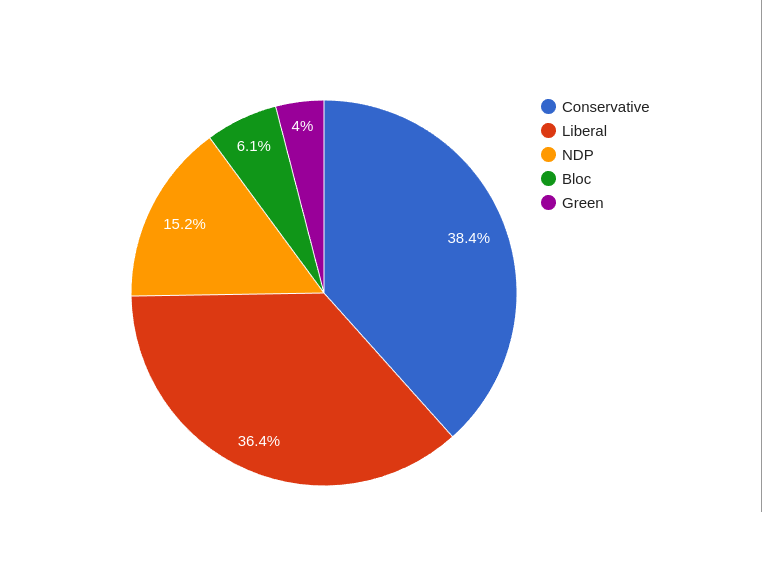Trudeau’s Liberals losing to leaderless Conservatives in polls

By Amy Chen
A leaderless Conservative Party of Canada has overtaken Prime Minister Justin Trudeau’s Liberal Party in the most recent Forum Research poll[1]Conservatives inch ahead, which suggests that If an election were held today, the Conservatives would win 170 seats, the Liberals 128, the NDP 26, the BQ 13, and 1 for the Green Party.
The numbers put the Tories, who have been without a permanent leader since Stephen Harper’s resignation following the October 2015 October defeat, in majority territory.
Liberal support has decreased by three percentage points, from 39% on February 26th to 36% amongst decided and leaning voters, while Conservative are up three points, from 35% on February 26th to 38%, to take the lead in opinion polls for the first time since September 2015.
NDP (15%) and Green Party (4%) support has remained steady while the BQ support has dropped one percentage point to 6% compared to February 26th.
“Canadians are not happy with the Liberal budget,” said Dr. Lorne Bozinoff, President of Forum Research. “The budget is so unpopular in fact, that we’re seeing the leaderless Conservatives gain an edge in popularity for the first time since 2015.”
In British Columbia the Liberals (35%) are well ahead of the Conservatives (29%), who themselves are statistically tied with the New Democrats (28%), the poll shows.
In the Atlantic region, the Liberals (48%) have seen a decrease in support, losing eleven points while The Conservatives (32%) are up two points.
In Québec, both the Liberals (40%) and Conservatives (20%) are slightly up since February, while the BQ (22%) is down five points.
In Ontario, the Liberals (38%) are trailing the Conservatives (45%) by seven points after the former shed four percentage points and the latter gained seven since February 26th.
In the prairies, the Conservatives (48%) are up six points, while the Liberals (19%) are down by ten and the NDP (20%) is down by five points compared to February.
The results of the random sampling of public opinion among 1029 Canadian voters are considered accurate +/- 3%, 19 times out of 20.
References



